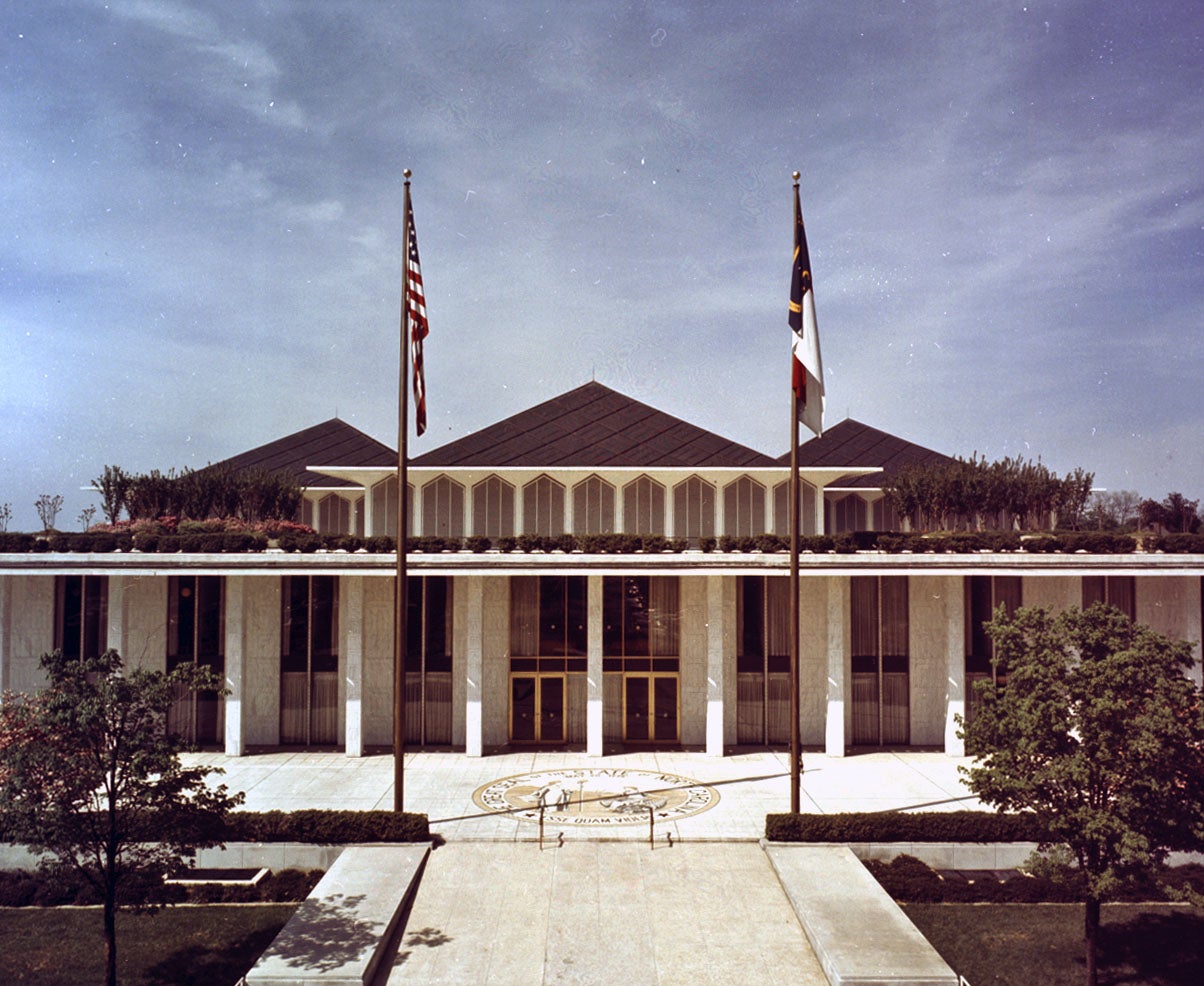Virus response, reopen fights mark N.C. legislative session
Published 11:33 pm Friday, June 26, 2020

- Exterior, New Legislative Building, Raleigh, NC, 1973. Photo by Clay Nolan. From Color Transparency series, General Negatives Collection, State Archives of North Carolina.
|
Getting your Trinity Audio player ready...
|
By Gary D. Robertson, Associated Press
North Carolina lawmakers finished most of their work for the year early Friday, setting another Medicaid overhaul date, funding a monument to honor African Americans and attempting to reopen businesses shuttered by Gov. Roy Cooper due to COVID-19.
House and Senate members negotiated and voted on scores of bills over a roughly 18-hour period before finishing up shortly after 3 a.m. After any veto override attempts or other activity next month, the General Assembly won’t return until early September, during which Republican leaders agreed to a limited, two-day agenda that includes distributing any additional federal coronavirus relief funds.
Before going home, legislators overwhelmingly approved a Medicaid package that increases next year’s funding by over $460 million and directs the program begin its long-delayed shift from traditional payments to managed care by July 2021. The overhaul was supposed to come online last fall, but got derailed in a showdown between Republican legislators and Cooper.
The state House and Senate started holding their traditional annual session in late April, finding rare consensus among the parties on a number of fronts, from improving access to mail-in absentee ballots during the pandemic to Transportation Department reform.
“Disagreements are inevitable, especially in trying times,” Senate leader Phil Berger and Minority Leader Dan Blue said in a news release Friday, but “our caucuses found agreement, and oftentimes unanimity, on fraught topics.”
Partisan fights still surfaced over bills advanced by the GOP-controlled legislature that sought to overturn the Democratic governor’s COVID-19 executive orders.
Cooper has already vetoed bills that would have partially reopened gyms and bars over his wishes. Dozens of pieces of legislation he must act upon through July 6 include measures reopening bowling alleys, amusement parks and other entertainment centers.
Sensing additional vetoes to come, Republicans late Thursday and early Friday pressed ahead with even more reopening legislation for many of these same businesses. These latest bills omitted language from previously measures that Democrats criticized.
But Cooper’s allies weren’t persuaded, saying he and health experts are best able to respond to the virus, and recent increases in cases affirmed a slow reopen is appropriate.
“I don’t believe that the 170 members of this General Assembly should be micromanaging our state’s response to this pandemic,” said Sen. Michael Garrett, a Guilford County Democrat. “We need to leave these tough decisions in the hands of people that are managing this crisis.”
But Republicans said expanding commerce, coupled with strong — but mostly voluntary social distancing directives — would put people back to work and keep them safe.
“The question to you is, ‘What have we got to lose?'” asked Sen. Rick Horner, a Nash County Republican. “Whatever (Cooper’s) done apparently hasn’t worked.”
Republicans went even further in the wee hours Friday, sending Cooper a bill that would force him and future governors to get the approval of the Council of State for future statewide emergency declarations and when categories of businesses are closed.
The legislature also left Raleigh without extending, for now, a previously approved temporary health exemption on the state’s face mask ban set to expire Aug. 1. Cooper’s statewide mandate for face coverings to address COVID-19 began Friday afternoon and is set to last through at least July 17.
Mask-wearing appeared to signal partisanship during the session, too. Most Democrats but few Republicans wore them inside the Legislative Building as the session wore on.
The coronavirus led legislative leaders to close the building to the public during its first week of work. The crisis forced the House and Senate to lurch into the use of videoconferencing for committees. The House livestreamed floor sessions and allowed some members to vote remotely.
“This has all been a new experience,” said Rep. David Lewis, a Harnett County Republican and House Rules Committee chairman.
The economic downturn attributed to the pandemic forced lawmakers to prepare for a projected $4.2 billion decline in government revenues by mid-2021. Rather than approve an omnibus budget bill, Republicans kept to passing smaller, targeted spending measures that generally were well-received by both parties.
The session also occurred during the demonstrations nationally and in North Carolina against racism following George Floyd’s May 25 death at the hands of police. Two measures addressing criminal record expungements and drug trafficking sentences passed overwhelmingly after stalling a year ago and were signed by Cooper.
A construction bill approved early Friday contained $1.5 million toward the development of a long-planned “North Carolina Freedom Park” in downtown Raleigh honoring the contributions of African Americans in the state.
READ ABOUT MORE NEWS AND EVENTS HERE.
RECENT HEADLINES:





